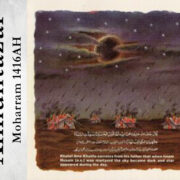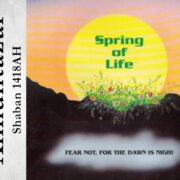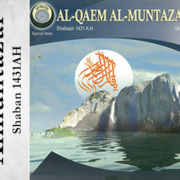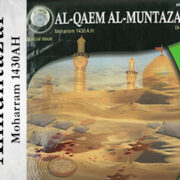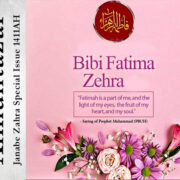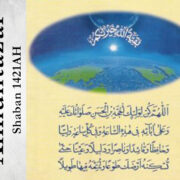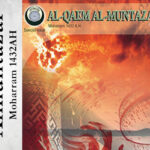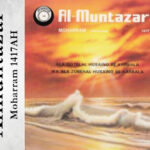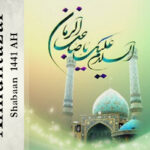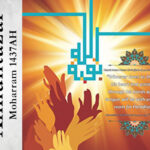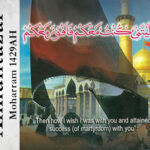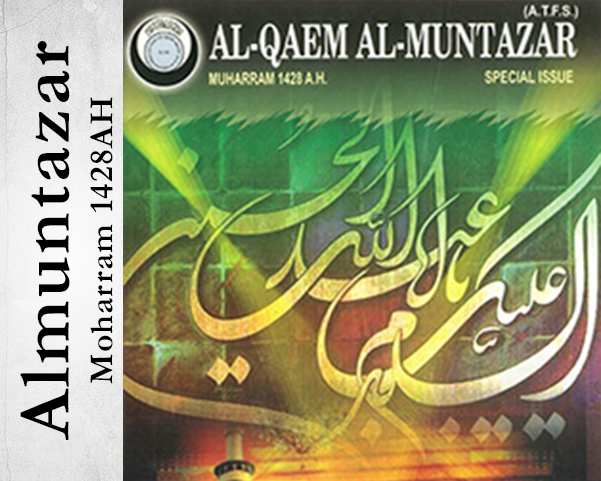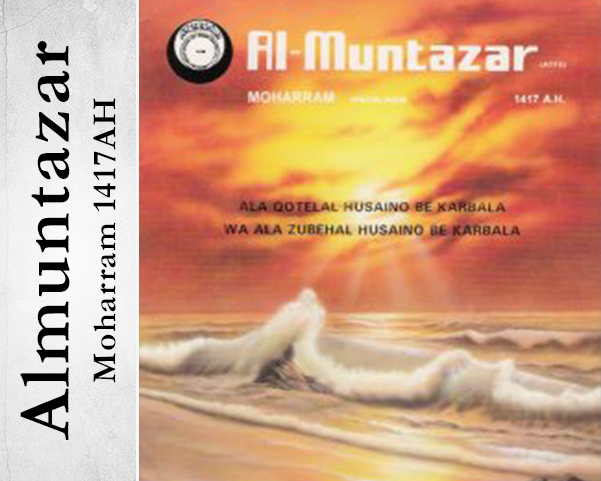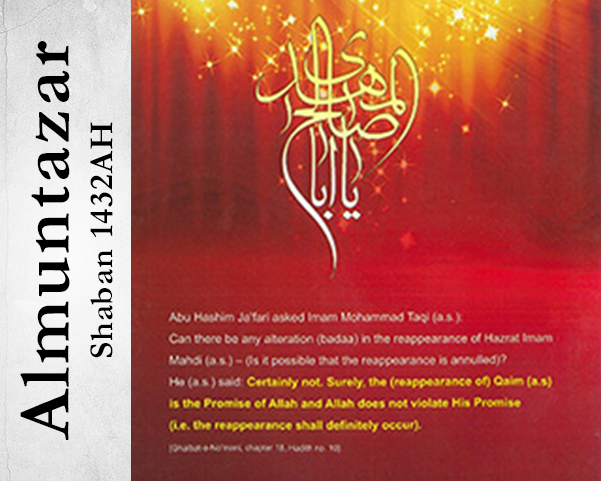The Legality of making figurine effigy (Taziyah) of the shrine The Shias of India and Pakistan , place effigies of the shrines of their Imams (a.s.) and more particularly of Imam Husain (a.s.) in their homes and Imambaras. This custom has come under critical attack by some Sunni scholars and also some so-called enlightened Shias, who question the religious legality of this practice and look at it through skeptical eyes. In this article, we shall produce those references and extracts which shall silent them and prove their skepticism like a design on the water.
(1) The famous narrator Janabe Abdullah Ibne Sinan narrates that: “On the day of Aashoora, I went to visit my master Imam Jafar Sadiq (a.s.). I saw he was extremely sorrowful, the color of his face had changed out of grief and tears were flowing. I said: ‘May your eyes never shed tears. Why are you weeping?’ He replied: ‘Don’t you know that today Imam Husain (a.s.) was afflicted by the catastrophic calamities?’ Then Imam (a.s.) narrated the events of Karbala , explained about the creation of’ ‘Light’ and ‘Darkness’, and among other things he said inter alia:
“O Abdullah Ibne Sinan! the best action of the day is that wear clean dress and unbutton your collars and pull-up your sleeves……. when sun is high, leave your house and go in the desert or to such a place where nobody is looking at you or go to a vacant house. Pray four rakat namaz and after salaam turn towards the grave of Imam Husain (a.s.), then make figurine effigies of (the graves) Imam Husain (a.s.), his sons and his kith and kin. Recite salaam upon him, curse his enemies and be averse to their deeds. Then the Almighty will exalt your grades in the heavens and forgive your sins……”
( Behaarul Anwaar, vol. 101, p.3O3-3O4, tradition no. 4; Musbahe Sheikh Tusi, p. 547)
The important part of this tradition is ‘make the like of his place of martyrdom’. Janabe Sayed bin Taoos (r.a.) has recorded this sentence in his ‘Iqbal’, p. 41 in the following manner: “…. Make the like of his place of martyrdom in front of your eyes and be attentive towards it with your mind and body. Purify yourself from all sorts of thoughts and visualize all of his calamities and affliction.”
“Tamsil” means ‘giving figure’ in front of oneself. Two points can be inferred from this:
(A) Envisaging the grave in one’s own mind
(B) Making the figurine effigy in front of one’s self and turning towards it.
According to Sheikh Tusi (r.a.), the first idea seems to be more germane but if looked at grammatically then the second idea is closer to reality. Also from the viewpoint of Sayed Ibn Taoos (r.a.), later idea is more germane to understanding because even he has quoted as ‘make the figurine in front of yourself’. Hence the possibility of the former idea is eliminated.
(2) Allamah Majlisi (r.a.) has narrated from Sheikh Mufid (r.a.) and Sayed ibn Taoos (r.a.) in the ‘Aamaal of 17th Rabiul Awwal’ that: “If you wish to do Ziyarat of the Holy Prophet (s.a.w.a.) at a place other than Medina then after doing Ghusl ‘make the figurine effigy’ of his grave in front of you and write his name on it. And turn your heart towards him and recite…….”
(Zaadul Ma’ad, Allamah Majlisi)
(3) Janabe Sheikh Bahai (r.a.) said:”If one person is afflicted with some calamity, then he should go to a lonely place, draw four lines on the ground and consider it to be the holy grave of the Holy Prophet (s.a.w.a.). Then pointing towards it recite twelve thousand times ‘Sallaho Alaika Ya Rasoolullah’. His calamity will be redressed.”
(Sahifatul Hadiyah, p.82)
Hence making effigies of the holy grave, tomb or place of martyrdom of Imam (a.s.) and turning towards it and reciting Ziyarat is correct and authentic. Those who opine that the traditions related to the prohibition of making idols and icons are applicable to making effigies hold a fallacious opinion, if not a deliberate misgiving because the traditions have prohibited to make the icons of a living person and not a lifeless thing and such effigies are of inanimate objects. Also there are so many masjid which are constructed in accordance with the plan, layout and architecture of Masjid-un-Nabi and thus can be regarded as the effigy of Masjid-un-Nabi. Hence those traditions in anyway cannot apply to the making of effigies of shrines.
The Precise Conclusions are:
(1) There is no harm in making effigies of the shrines of Imams (a.s.), if intended to recite Ziyarat from distance, rather great traditionalists have found it to be an authentic practice.
(2) For making an effigy, no special material or characteristic is required but mere drawing of four lines on the ground and writing the name of Holy Imam (a.s.) is sufficient to centre our attention towards it.
(3) Even other sects of Muslims do not have any firm reasoning which is opposed to our viewpoint neither any such prohibition can be found in the traditions. Rather the Sunni jurists consider it as a permissible (Mubah) act.
(4) Traditions related to prohibition of making idols and icons do not apply to the making of figurine effigies.
“O Allah give us an opportunity to visit the shrine of Imam Husain (a.s.) in this world and make us a recipient of his intercession in the hereafter.”

